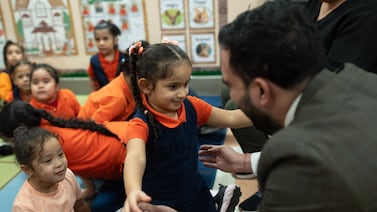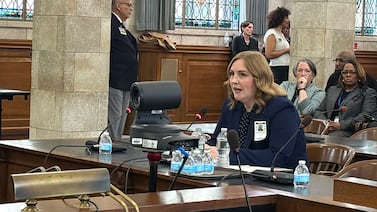Colorado voters on Tuesday passed a measure that will help school districts offer free school meals for all students.
Unofficial election results show Proposition FF ahead by a wide margin.
Proposition FF will help pay for school meals by limiting state tax deductions for those making more than $300,000 per year — meaning those taxpayers would pay more in taxes. That revenue would be available to school districts that choose to offer free school meals for all students.
Advocates Tuesday night said they were hopeful and not surprised.
“We believe in Colorado voters, we know they understand that our kids need food when they’re trying to learn,” said Ashley Wheeland, policy director for Hunger Free Colorado, a member of the Healthy School Meals for All coalition.
Currently, districts get federal reimbursement for school lunches provided to students from low-income families. The federal threshold to qualify for free or reduced-price meals varies by family size. This year, a family of four would need to make less than $51,338 annually to qualify for subsidized meals.
Educators and advocates believe that because the cost of living in Colorado is higher than in many other states, many families who make more than that amount still struggle to afford healthy meals.
Proposition FF would require districts to apply for what’s known as the Community Eligibility Provision program to get the federal government to cover the cost of more meals. Rather than asking individual families to fill out applications for free- or reduced-price lunch, the district would use Medicaid and other data to demonstrate student need. The state money generated by Proposition FF would cover any cost not covered by federal dollars.
Advocates believe most school districts would participate.
According to a state fiscal analysis, the tax measure is expected to bring in $100.7 million in the budget year 2023-24, and increasing amounts each year after.
The measure passes with a majority of the vote.
Yesenia Robles is a reporter for Chalkbeat Colorado covering K-12 school districts and multilingual education. Contact Yesenia at yrobles@chalkbeat.org.





